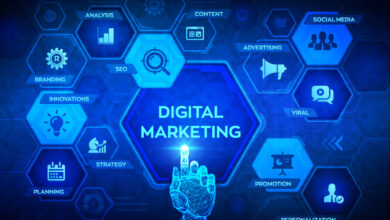The Impact of Event Marketing on Business Growth

Event marketing is a dynamic and interactive approach to promoting a brand, product, or service through in-person or virtual events. This strategy focuses on creating memorable experiences for attendees, fostering direct engagement, and building meaningful relationships with potential and existing customers. In today’s fast-paced digital landscape, where personal connections are often overshadowed by online interactions, event marketing stands out as a powerful tool to drive business growth. This article delves into the significance of event marketing, its benefits, and how businesses can leverage it effectively.
What is Event Marketing?
Event marketing involves organizing or participating in events such as trade shows, conferences, seminars, product launches, and webinars to promote a brand or product. These events can be physical or virtual and are designed to provide attendees with valuable experiences, information, and networking opportunities. The goal is to create a lasting impression that encourages attendees to take positive actions, such as making a purchase, becoming a lead, or spreading the word about the brand.
Benefits of Event Marketing
1. Direct Customer Engagement
One of the primary benefits of event marketing is the ability to engage with customers directly. Unlike other marketing strategies, events provide a platform for face-to-face interactions, allowing businesses to build personal connections and trust with their audience. This direct engagement often leads to higher conversion rates and customer loyalty.
2. Brand Awareness and Visibility
Events offer an excellent opportunity to increase brand awareness and visibility. By showcasing products and services in a dynamic environment, businesses can capture the attention of potential customers and differentiate themselves from competitors. High-profile events also attract media coverage, further enhancing brand visibility.
3. Networking Opportunities
Events bring together industry professionals, thought leaders, and potential clients, creating a rich environment for networking. Businesses can forge valuable partnerships, collaborate on new initiatives, and gain insights into industry trends and customer needs. These connections can lead to long-term business growth and innovation.
4. Lead Generation
Event marketing is highly effective for lead generation. By offering valuable content, demonstrations, and personalized interactions, businesses can capture the interest of potential customers and collect their contact information. These leads can then be nurtured through follow-up communications, eventually converting them into loyal customers.
Strategies for Successful Event Marketing
To maximize the impact of event marketing, businesses should consider the following strategies:
1. Set Clear Objectives
Before planning an event, it is crucial to define clear objectives. Whether the goal is to launch a new product, generate leads, or increase brand awareness, having specific objectives helps in designing the event and measuring its success.
2. Choose the Right Type of Event
Selecting the right type of event is essential for reaching the target audience effectively. For instance, a tech company might benefit from participating in industry trade shows, while a fashion brand could host exclusive launch parties or fashion shows.

3. Promote the Event
Effective promotion is key to attracting attendees. Utilize multiple channels such as social media, email marketing, and partnerships with influencers to spread the word. Engaging visuals and compelling content can draw more attention to the event. Edit photos to make your promotional materials visually striking and professional, enhancing your promotional efforts and leaving a lasting impression on your audience.
4. Engage Attendees
Create engaging activities and interactive experiences to keep attendees interested. This could include live demonstrations, Q&A sessions, workshops, and networking opportunities. Personal interactions are crucial for making a lasting impact.
5. Follow Up
After the event, follow up with attendees to maintain the connection. Send thank-you emails, share event highlights, and provide additional information or offers to keep the engagement going.
Conclusion
Event marketing is a powerful strategy that can drive significant business growth by fostering direct customer engagement, increasing brand visibility, and generating valuable leads. By setting clear objectives, choosing the right type of event, and engaging attendees effectively, businesses can create memorable experiences that lead to long-term success.
Incorporating event marketing into your overall strategy can elevate your brand and create meaningful connections with your target audience, ultimately driving business growth and success.





